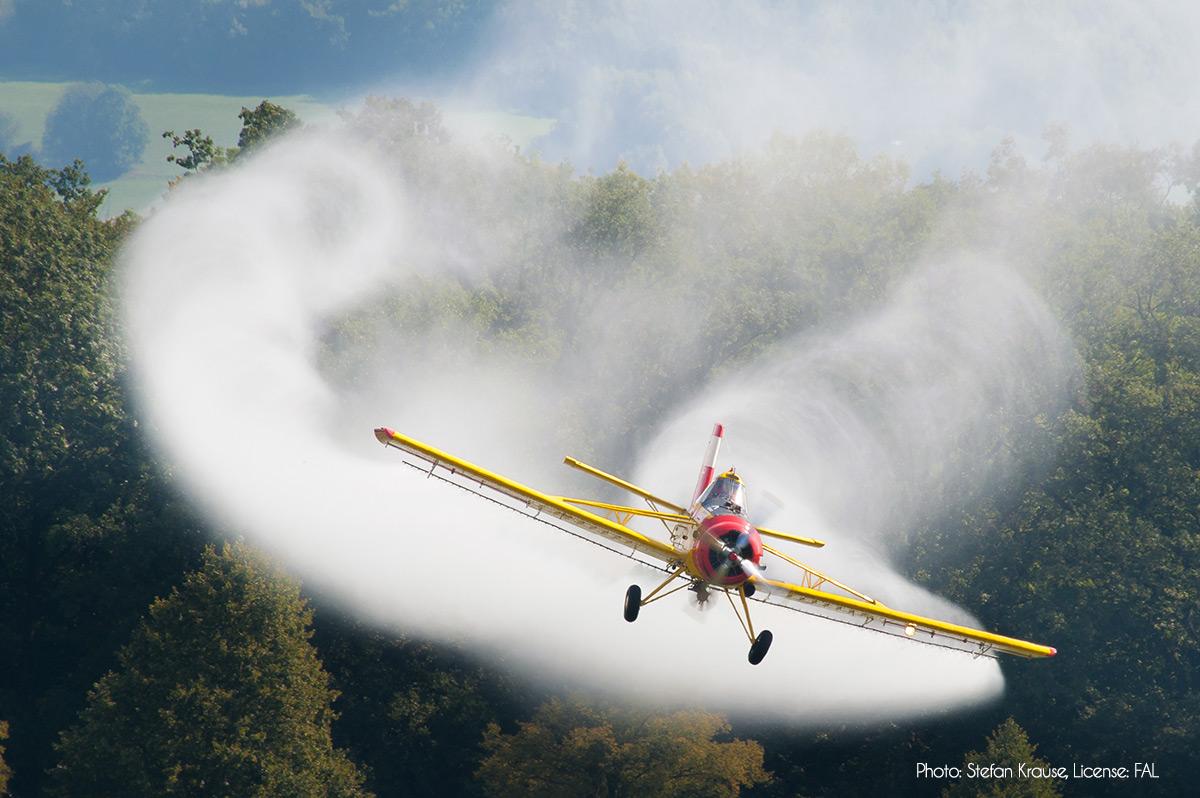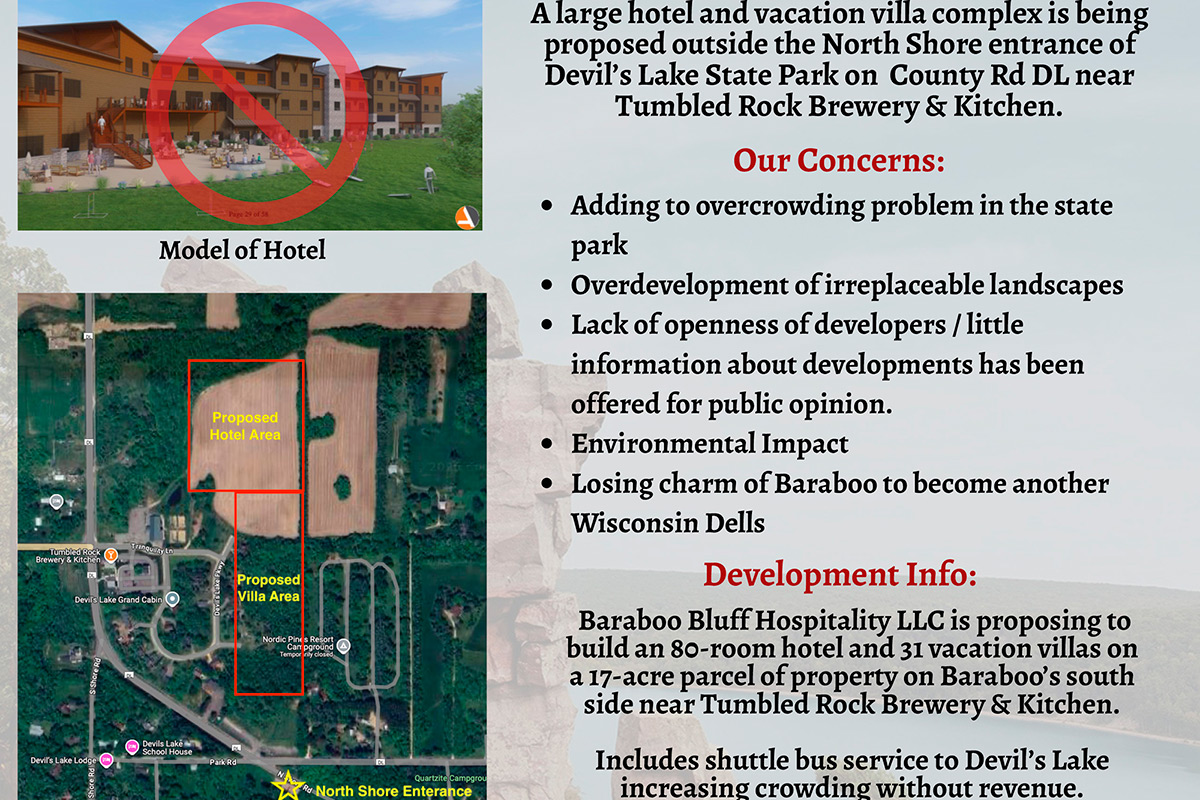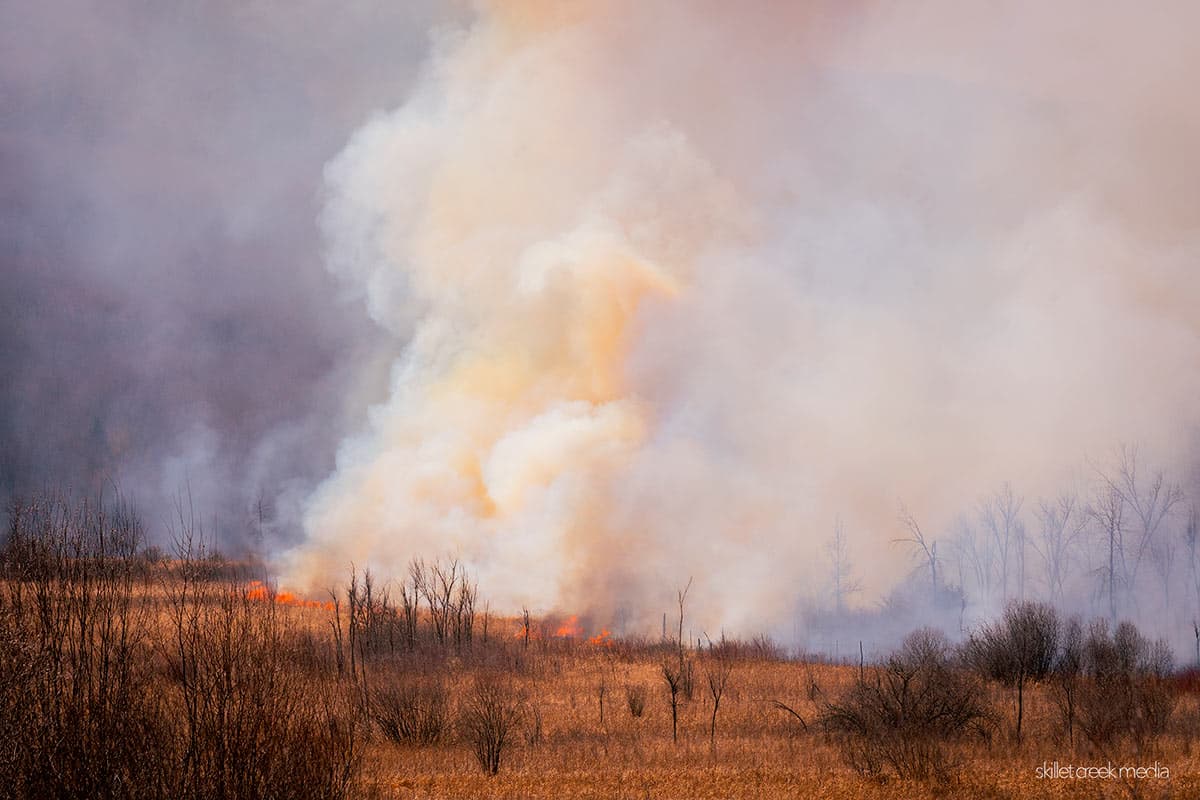A controversial large-scale lodging project has been proposed just outside the north entrance of Devil’s…

The Wisconsin Department of Natural Resources will be spraying areas of Devil’s Lake State Park for spongy moth (formerly called gypsy moth) during mid-May and early June. This is done to kill the insects and protect trees from defoliation. That said, campers, hikers, and other park visitors may not want to be under it. So, we looked into this for you.
According to DNR Communications Director Sara Hoye, the exact timing of the spraying is dependent on the weather and growth of the caterpillars. Spraying can be anytime from 5:15 in the morning and into the afternoon depending on need and the weather. Each block they spray will take from 10 to 30 minutes at a run. You can call the toll-free Spongy Moth Information Line 1-800-642-6684 in May and June to hear where spraying is scheduled to occur the following day.
Safety?
The chemical being sprayed is a bacterial insecticide called “Foray” commonly known as BTK, or Bacillus thuringiensis. According to the DNR, while considered safe, it is possible that folks with severe food allergies or asthma may react to the spray. According to a study by the National Library of Medicine in 2003, “Symptom complaints increased significantly following the aerial spraying, in particular: sleep problems, dizziness, difficulty concentrating, irritated throat, itchy nose, diarrhea, stomach discomfort, and gas discomfort.” There was also a “significant increase in symptoms in study participants with hay fever”. They concluded that, “Aerial spraying with Foray 48B is associated with some adverse health consequences in terms of significant increases in upper airway, gastrointestinal, and neuropsychiatric symptoms, as well as a reduction in the overall perception of health in the exposed population.” You can read this report and the Abstract here. As with most chemicals used, there is usually a wide range of study results and opinions, so it’s fair for some park users to be concerned.
Are children & pets more sensitive? Well, according to the Colorado Department of Public Health, “Children may be especially sensitive to pesticides compared to adults. However, there is currently no data showing that children have increased sensitivity specifically to Btk or Foray® 48B”. The same flier says that there have been no documented cases of a pet having adverse effects, but they still recommend keeping pets inside.
Other Issues?
Folks often ask if the spray will damage their car, but according to the DNR’s Spongy Moth FAQ you may want to wash your car… twice. 🙂 We certainly recommend that you read this FAQ from the DNR.
How To Avoid The Spray?
Here’s what the folks at the DNR have to say about avoiding the spraying,
“It is easy to avoid exposure by calling, receiving emails or following social media as described (below) to find out when the parks will be treated. You can then stay out of the property until 30 minutes after the spraying is finished. The spray may give off an odor like stale beer until it dries, which typically takes 15 to 30 minutes. This odor may be detectable away from the treated area.
- Press releases will be sent out in early May prior to the start of the spray program. This is when you should start checking the daily updates at the options described below.
- Call toll-free Spongy Moth Information Line 1-800-642-6684 in May and June to hear where spraying is scheduled to occur the following day.
- Sign up for direct email notifications of spray activities. The emails have the same message as the 1-800 number and will arrive daily during May and June until the spraying is complete. Subscribe or unsubscribe anytime online at gypsymoth.wi.gov.
- You can also find updates on the progress of the spraying by following DATCP (Wisconsin Department of Agriculture, Trade and Consumer Protection.) on Facebook or Twitter.
But What if?
It’s generally recommended to avoid a sprayed area for 30 minutes after spraying. Don’t touch wet plants and if you end up touching sprayed areas before they dry, wash your skin with soap and water. Lastly, if you feel like you are having health symptoms that might be related to the spray call the Poison Center at 1-800-222-1222 for medical advice or 911 if it is an emergency.
So I hope this info helps you be better informed as you visit the park over the next month or so. Be sure to either call or plug into the DATCP’s various communication channels to stay up to date. And thanks to Sara Hoye at the DNR for the detailed information!
In the end, we don’t have many options to save our trees from the months… but at the same time, let’s stay safe out there!

For nearly 2 decades the Skillet Creek blog has focused on 3 main goals; To inspire you to visit and explore the Devil’s Lake region, to help you get the most your visit by sharing tips, events, and other helpful information. Lastly to advocate for our environment & wildlife and talk about how we can keep our natural areas amazing now and into the future! That last goal can sometimes cause controversy, but it’s the only way we can accomplish the first two. – Derrick Mayoleth, Owner.



